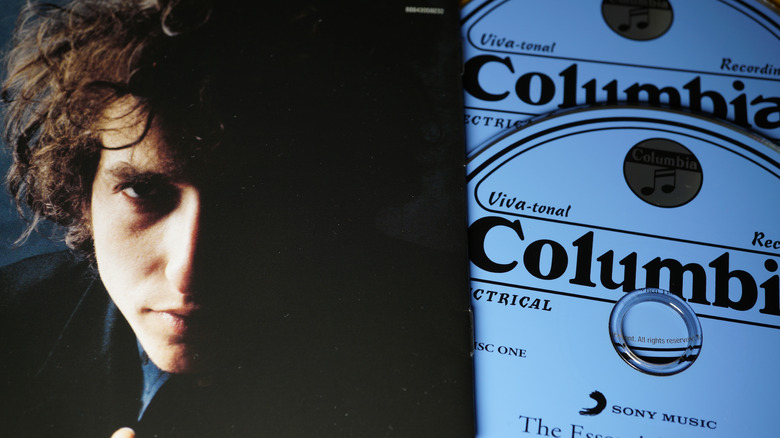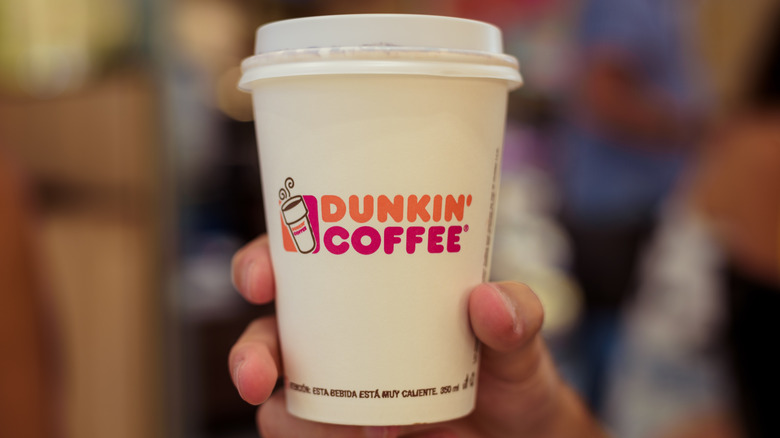Bob Dylan Dedicated His New Book To Dunkin' And We're Not Sure Why
Coffee shops have historically been the birthplace of exceptional pieces of literature. According to Better Reading, J.K. Rowling wrote most of Harry Potter in Edinburgh, Scotland's The Elephant Room, a fact that draws in fans who appreciate the series. In Paris, the La Rotonde café inspired writers such as F. Scott Fitzgerald and Ernest Hemingway, and in the states, San Francisco's Vesuvio Café has captivated the likes of Allen Ginsberg and Dylan Thomas.
Writing in cafés is desirable for quite a few reasons, per Pennington Creative. For one, it's relaxing when compared to a stuffy office, and you can never go wrong with coffee to keep you alert — plus, there's usually a plethora of tasty treats on offer. Coffee houses also offer background noise, but in a quiet way that isn't usually too distracting. Nobody seems to know for sure, but it's possible Bob Dylan wrote some of his new book in a popular coffee chain, as indicated in the dedication section of "The Philosophy of Modern Song," (per Boston.com).
Does Bob Dylan write at Dunkin'?
An unexpected shout-out in singer-songwriter Bob Dylan's new book, "The Philosophy of Modern Song," caused speculation regarding what exactly it meant (per Boston.com). The book, slated for release on November 1, listed "All the crew at Dunkin' Donuts," on its acknowledgment page, along with six others that made a bit more sense.
This likely led employees and customers alike to wonder: did Dylan often write at Dunkin'? Did he hit the drive-thru daily to pick up a coffee? The vagueness of the dedication sparked questions on a Reddit thread where the page was posted, with one user voicing their curiosity. "Is Dylan a regular at a certain Dunkin location? Is it just one location, or does he like to visit many?" the reply began. "Does he just sit there in his hoodie by himself in a corner, dipping donuts into coffee? Has he written any songs at Dunkin'?" The questions, although valid, will probably never be answered until Bob Dylan himself speaks out about the remark.

